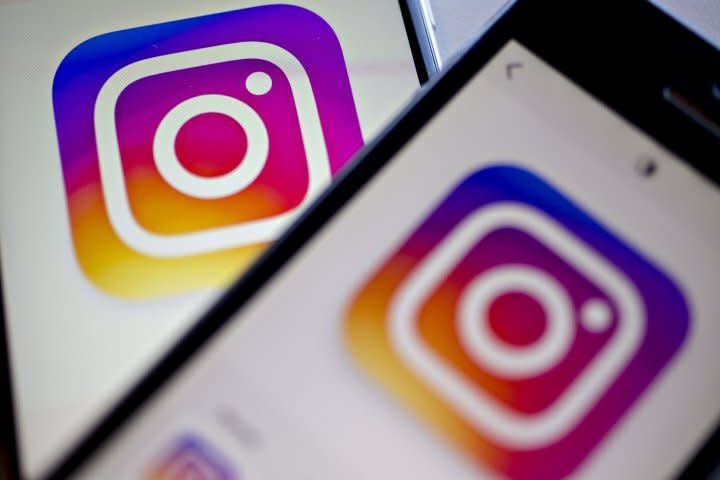Facebook Pauses Work on Kids' Version of Instagram After Report About App's 'Toxic' Effect on Teens

Facebook is halting its plans to launch a kids' version of Instagram following a report about the "toxic" effects that the popular app has on adolescents.
Six months after Facebook introduced its plans for "Instagram Kids," which would be tailored to children under the age of 13, the social networking company said they have paused their plans to ensure the safety of its young users.
"While we stand by the need to develop this experience, we've decided to pause this project," Adam Mosseri, the head of Instagram, announced in a blog post on Monday. "This will give us time to work with parents, experts, policymakers and regulators, to listen to their concerns, and to demonstrate the value and importance of this project for younger teens online today."
"We started this project to address an important problem seen across our industry: kids are getting phones younger and younger, misrepresenting their age, and downloading apps that are meant for those 13 or older," Mosseri continued. "We firmly believe that it's better for parents to have the option to give their children access to a version of Instagram that is designed for them — where parents can supervise and control their experience — than relying on an app's ability to verify the age of kids who are too young to have an ID."

getty Two children using a mobile device
RELATED: Children Advocates Tell Mark Zuckerberg, Facebook to Scrap Plans for Kids' Version of Instagram
The announcement come weeks after The Wall Street Journal published a report about the effects of Instagram, claiming the app was "toxic" for teenagers and led to mental health issues, including depression and anxiety.
Teen girls were the focus of WSJ's article, which claimed that according to one report, allegedly posted to Facebook's internal message board and reviewed by the newspaper, Instagram made 32% of girls who were already feeling bad about their bodies feel even worse.
Teen boys also were impacted by the app, with a 2019 report on mental health by Facebook's researchers finding that 14% of boys in the U.S. said Instagram made them feel worse about themselves, WSJ reported. 40% of teen boys also experienced negative social comparison due to the app, according to a 2020 Facebook report on body image, per the WSJ.
Facebook refuted WSJ's claims in a blog post on Sunday, arguing that Instagram also has a positive effect on teens and has been proven to make some feel better during difficult times.
"It is simply not accurate that this research demonstrates Instagram is 'toxic' for teen girls," the release stated. "The research actually demonstrated that many teens we heard from feel that using Instagram helps them when they are struggling with the kinds of hard moments and issues teenagers have always faced."
Mosseri also addressed the report in his blog post on Monday, writing, "To be clear, I don't agree with how the Journal has reported on our research... We do research like this so we can make Instagram better. That means our insights often shed light on problems, but they inspire new ideas and changes to Instagram."
RELATED VIDEO: Bindi Irwin Announces Break from Social Media: 'Mental Health Deserves More Understanding'
This wasn't the first time that Facebook received pushback on "Instagram Kids."
In April, just a month after the app was announced, a group of nearly 100 experts and advocates called for the company to scrap its plans for the new platform.
The organizations and individuals, led by the Campaign for a Commercial-Free Childhood, claimed that the app would be "harmful" to adolescents' developmental growth, as well as increase bullying and the chance of interaction with sexual predators.
At the time, Facebook spokesperson Stephanie Otway told PEOPLE they heard the group's complaints and were working to find a middle ground.
"We agree that any experience we develop must prioritize their safety and privacy, and we will consult with experts in child development, child safety and mental health, and privacy advocates to inform it," Otway said, in part. "In addition, we will not show ads in any Instagram experience we develop for people under the age of 13."
Around that same time, U.S. Senators Ed Markey and Richard Blumenthal and Congresswomen Kathy Castor and Lori Trahan sent a letter to Facebook CEO Mark Zuckerberg, urging him to cancel plans for the platform.
Following Monday's announcement, Markey also released a statement on social media, writing, "Facebook is heeding our calls to stop plowing ahead with plans to launch a version of Instagram for kids. But a 'pause' is insufficient. Facebook must completely abandon this project."
RELATED: Facebook Plans to Build a 'Parent-Controlled' Instagram for Children Under 13
In his blog post on Monday, Mosseri reminded readers that YouTube and TikTok already have versions of their app for people under 13 and that "developing age-appropriate experiences designed specifically for them is far better for parents than where we are today."
"Our intention is not for this version to be the same as Instagram today," he explained. "It was never meant for younger kids, but for tweens (aged 10-12). It will require parental permission to join, it won't have ads, and it will have age-appropriate content and features."
"Parents can supervise the time their children spend on the app and oversee who can message them, who can follow them and who they can follow," Mosseri continued. "These new features, which parents and teens can opt into, will give parents the tools to meaningfully shape their teen's experience."
Ultimately, Mosseri emphasized, he wants the best for the younger generations as he, too, is a parent. "I have three children and their safety is the most important thing in my life," he wrote. "I hear the concerns with this project, and we're announcing these steps today so we can get it right."

 Yahoo Finance
Yahoo Finance 